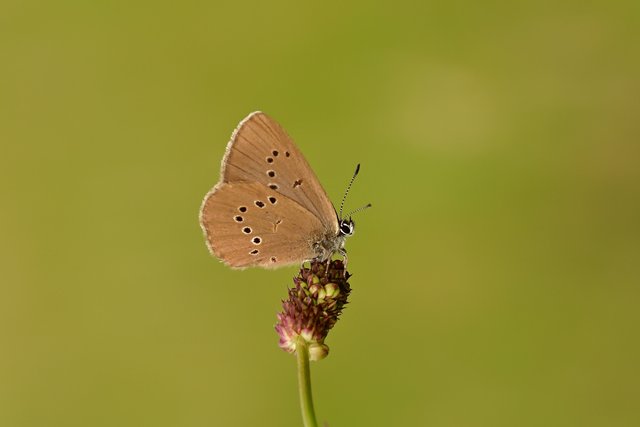Butterflies are winged insects from the lepidopteran suborder Rhopalocera, characterized by large, often brightly coloured wings that often fold together when at rest, and a conspicuous, fluttering flight. The group comprises the superfamilies Hedyloidea (moth-butterflies in the Americas) and Papilionoidea (all others). The oldest butterfly fossils have been dated to the Paleocene, about 56 million years ago, though they likely originated in the Late Cretaceous, about 101 million years ago.
Quick Facts Scientific classification, Subgroups ...
Butterflies have a four-stage life cycle, and like other holometabolous insects they undergo complete metamorphosis. Winged adults lay eggs on the food plant on which their larvae, known as caterpillars, will feed. The caterpillars grow, sometimes very rapidly, and when fully developed, pupate in a chrysalis. When metamorphosis is complete, the pupal skin splits, the adult insect climbs out, expands its wings to dry, and flies off.
Some butterflies, especially in the tropics, have several generations in a year, while others have a single generation, and a few in cold locations may take several years to pass through their entire life cycle.
